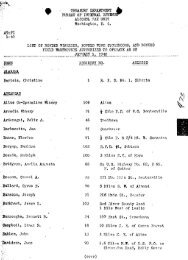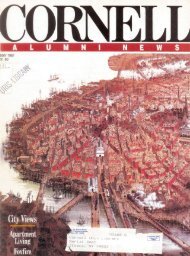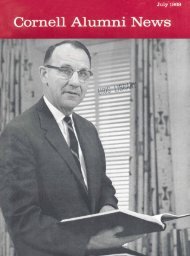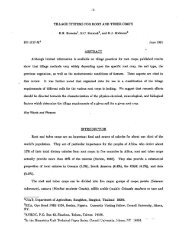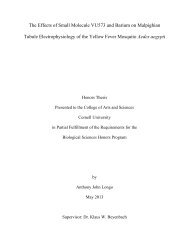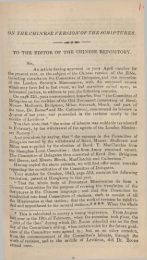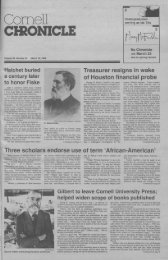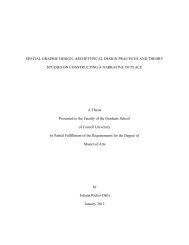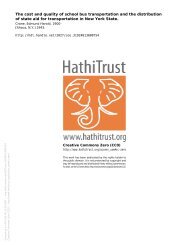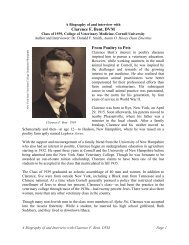archaeological and textual records - eCommons@Cornell - Cornell ...
archaeological and textual records - eCommons@Cornell - Cornell ...
archaeological and textual records - eCommons@Cornell - Cornell ...
You also want an ePaper? Increase the reach of your titles
YUMPU automatically turns print PDFs into web optimized ePapers that Google loves.
we weep for thee because, in losing thee, we have lost our Father <strong>and</strong><br />
Protector. Nevertheless we will console ourselves with the thought that thou<br />
still holdest that relation to us in Heaven, <strong>and</strong> that thou hast found in that abode<br />
the infinite joy whereof thou has so Often told us.” (Dictionary of Canadian<br />
Biography 2009)<br />
Julien Garnier<br />
Born: January 6, 1643 Brittany, France; Died: January 30, 1730 Quebec<br />
Julien Garnier entered the Jesuit Order at the age of 17. Two years later, he<br />
arrived in Quebec. For the next three years, he taught at the Jesuit College <strong>and</strong> studied<br />
Huron, Algonquian, <strong>and</strong> Iroquois languages. He began his mission work with Father<br />
Jacques Bruyas among the Oneidas, shortly thereafter went to work with the<br />
Onondagas (Canadian Biography 2009). In 1668 he was summoned by Father Fremin<br />
to assist with the Seneca mission, <strong>and</strong> it is in Seneca l<strong>and</strong> where he remained the<br />
longest. Notably, his overall tenure in New France was the longest of any of the<br />
Jesuits; by the time he died, he had spent over 67 years <strong>and</strong> 3 months in the northeast<br />
(Dictionary of Canadian Biography 2009). Father Garnier was prolific at gathering<br />
converts <strong>and</strong> also was an adept linguist; he eventually wrote a dictionary of the Seneca<br />
language (Bihler 1956:86). As will be discussed later, during his time with the Seneca<br />
Garnier was careful to try <strong>and</strong> separate his mission work from politics, noting how<br />
contentiously the movements of the French military were perceived by his charges.<br />
Jacques Fremin<br />
Born: March 12, 1628 Reims; Died: July 20, 1691 Quebec<br />
Father Jacques Frémin became a Jesuit in Paris on November 21, 1646, <strong>and</strong><br />
came to Canada in 1655. In 1656 his work with the Onondaga intersected with Simon<br />
Le Moyne’s embassy. The dictionary of Canadian Biography omits his time in Seneca<br />
l<strong>and</strong>, but we know from Catholic Historian Hugh Bihler <strong>and</strong> the Jesuit Relations that<br />
10



